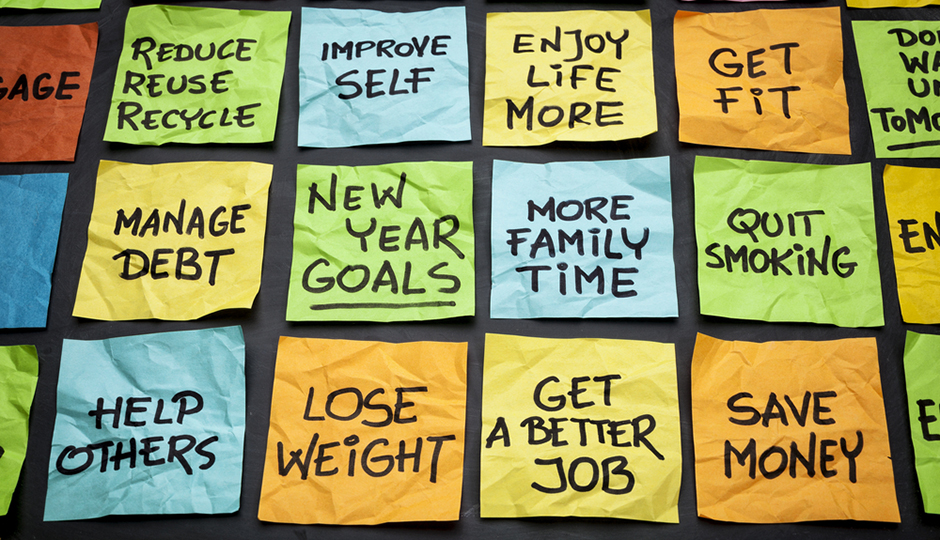5 Rules for Making (and Keeping!) Your New Year’s Resolution

Shutterstock
Happy New Year, Be Wellers! Are you ready to get 2013 started on the right foot?
For many, the New Year means a fresh start, a new beginning, a clean slate. It also means a new resolve to finally (finally!) lose some weight. The sober truth is that while many will vow to take better care of their bodies, the vast majority will fail miserably within the first 60 days. (Womp, wommmmp.)
Now for the good news: You don’t have to be one of those people who fail. No, really. Keep reading, because I’m about to give you five simple rules for making (and keeping) your New Year’s lose weight, get fit resolution.
1. Be Specific
Ask 10 CEOs what their company’s goals are for this year and I can guarantee they won’t say something like, “We want to make more money.” A better business goal would be something like, “We want to increase sales by 5 percent and our retention rate by 10 percent.” The difference here is that the second goal is super specific and the first one is not; the more specific a goal is, the better you’re able to measure the result.
If all of this seems obvious to you, that’s totally fine—it isn’t rocket science. But why, then, is your weight-loss goal simply to “lose some weight”? If you lose a half a pound this year, that’s a success, right? I mean, you technically lost weight, didn’t you? The key here is to make your resolution very specific. This allows you to plan out your goal and forces you to be more accountable. So think of a specific goal or resolution that you’d really like to make instead of just saying that you’d generally like to be in better shape this year.
Not specific: “I want to lower my body fat percentage this year.”
Very specific: “I want to lower my body fat percentage by 7 percent by December 31st.”
2. Be Realistic
Imagine that you own a single small pet shop and you said to yourself, “You know what? I want to make a 10 million dollar profit this year.” While I would applaud you for reaching for the stars, let’s be honest: this goal just isn’t realistic. The same is true for your weight-loss goal. If you have 60 pounds to lose, don’t try to lose it all in one month, and don’t make it your initial goal. A huge goal like that can be overwhelming and cause you to get frustrated and give up at the first bump in the road. Instead, you should set a realistic goal that helps you take smaller steps toward reaching your ultimate goal.
Not realistic: “I want to lose 60 pounds by February.”
Very realistic: “I want to lose five pounds per month for 12 months.”
3. Determine the Path
If you think your goals are going to be reached just by telling yourself you want to achieve them, you’re dreaming. It’s critical to think about—and plan out—how you’re going to reach your goal. Just like with the goal itself, your path needs to be specific and realistic.
Bad path: “I am going to lose 10 pounds by June 1st by eating less.”
Good path: “I am going to lose 10 pounds by June 1st by only having one scoop of ice cream once per week instead of every day and by walking for 30 minutes on my lunch break every day.”
4. Make It Known
Accountability is key if you really want to stick to your New Year’s resolution. Instead of keeping it a secret, share your goal with your personal trainer, friend, family member or coworker. Post it on your Facebook page or blog. Sign up for a social weight-loss or fitness app like My Fitness Pal or Daily Mile to tap into communities who can help keep you on track—and cheerlead you to the finish line. By telling more people, you might even find someone else who’s trying to accomplish the same goal you are. If you talk about your struggles and accomplishments together, you’ll be more likely to see it through to the end.
Not accountable: “I told my six-month-old daughter that I wanted to lose 10 pounds by the first day of summer.”
Very accountable: “I posted my 10-pound weight-loss goal on Facebook for all my friends to see.”
5. Make It Rewarding
Sometimes, just meeting a goal doesn’t provide enough motivation. This is why we have rewards for almost everything we do. As a kid, you ate your vegetables and were rewarded with dessert. At work, you did a great job on that project and were rewarded with a raise. How much harder did you work knowing you were going to get that raise if you did a good job? Use a similar tactic with your weight-loss goal. Create a reward system for yourself before you start working toward it. I wouldn’t recommend a food-based reward since you’re don’t want to sabotage yourself immediately after you’ve reached your goal. But maybe you could treat yourself to new workout clothes or a massage. Once you’ve dreamed up your incentive, imagine how great it will feel to get it once you’ve reached your goal, and let that be your motivation.
Bad reward: “If I lose ten pounds by June 1st, I get to go to McDonalds for every meal for a week.”
Good reward: “If I lose ten pounds by June 1st, I’m going to take a vacation to my favorite destination.”
» Ready to get started? Share your specific, realistic New Year’s resolution in comments, and let us know how you plan to achieve it.
……………..
Brian Maher is the owner of Philly Personal Training, a private personal training studio in the Rittenhouse Square area. He and his staff of personal trainers offer packages to busy individuals looking to make lifestyle changes by improving their overall fitness and wellness. Read all of Brian’s posts for Be Well Philly here.


